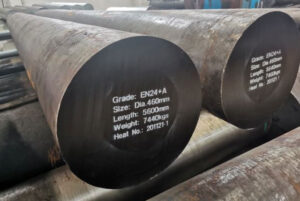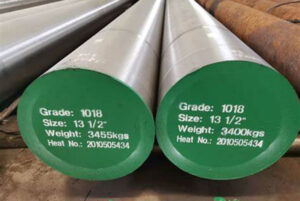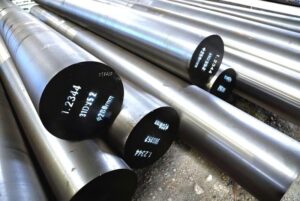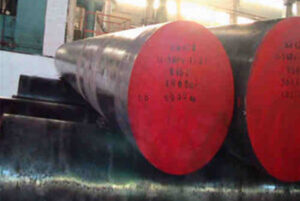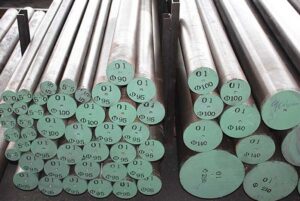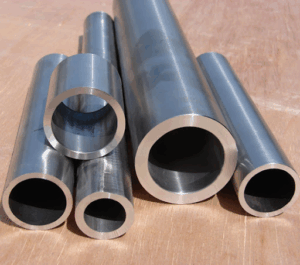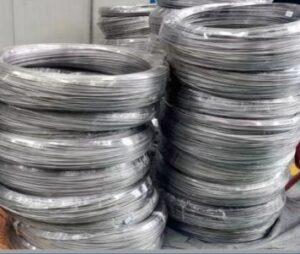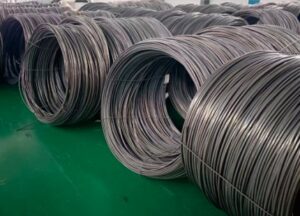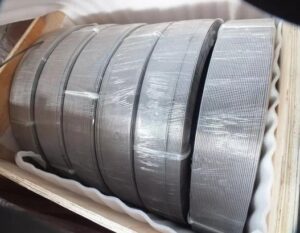Overview of T10 Mould Steel
Special Steel T10 Mould Steel is an exceptional type of high-carbon tool steel known for its superior hardness, excellent wear resistance, and high strength. Commonly used in the manufacturing of cutting tools, dies, and molds, T10 steel stands out due to its ability to retain sharp edges and withstand significant wear and tear. This article will delve into the various aspects of T10 Mould Steel, including its composition, properties, applications, and much more.
T10 Mould Steel, also referred to as carbon tool steel, is renowned for its remarkable durability and toughness. With a carbon content of around 1.0%, it possesses a fine balance of hardness and strength, making it ideal for demanding industrial applications. In this comprehensive guide, we’ll explore the unique attributes of T10 Mould Steel, its advantages and limitations, and compare it with other types of special steels.
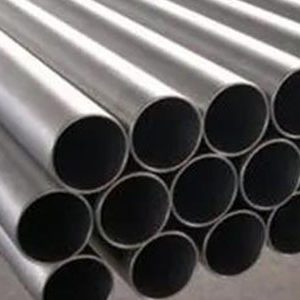
Composition and Properties of T10 Mould Steel
Chemical Composition
The chemical composition of T10 Mould Steel is a critical factor that determines its performance characteristics. Here’s a breakdown of its main components:
| Element | Percentage |
|---|---|
| Carbon (C) | 0.95 – 1.04% |
| Silicon (Si) | 0.17 – 0.37% |
| Manganese (Mn) | 0.20 – 0.40% |
| Chromium (Cr) | 0.10 – 0.30% |
| Nickel (Ni) | ≤ 0.30% |
| Copper (Cu) | ≤ 0.25% |
| Phosphorus (P) | ≤ 0.03% |
| Sulfur (S) | ≤ 0.03% |
Physical and Mechanical Properties
The combination of these elements results in a steel that offers:
- High Hardness: Typically in the range of 58-63 HRC after proper heat treatment.
- Excellent Wear Resistance: Due to the high carbon content, it has superior wear resistance.
- Good Machinability: Despite its hardness, it can be machined with precision.
- High Strength: Ideal for applications requiring strong and durable materials.
| Property | Value |
|---|---|
| Hardness (HRC) | 58 – 63 |
| Tensile Strength | 1,200 – 1,500 MPa |
| Yield Strength | 900 – 1,200 MPa |
| Elongation | 8 – 12% |
| Modulus of Elasticity | 210 GPa |
| Thermal Conductivity | 24 W/m·K |
| Density | 7.85 g/cm³ |
Applications of T10 Mould Steel
T10 Mould Steel is employed across various industries due to its robustness and resilience. Here are some common applications:
| Application | Description |
|---|---|
| Cutting Tools | Used in manufacturing knives, drills, and saw blades. |
| Molds and Dies | Essential for creating injection molds and stamping dies. |
| Wear-Resistant Parts | Ideal for components subjected to high wear and tear. |
| Precision Instruments | Used in parts that require high accuracy and durability. |
| Agricultural Tools | Common in the production of durable farming tools. |
| Automotive Components | Employed in making hard-wearing parts for vehicles. |
| Metal Forming | Utilized in various metal forming operations due to its toughness. |

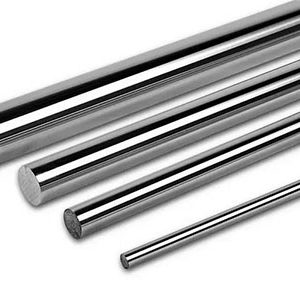
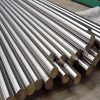
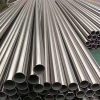
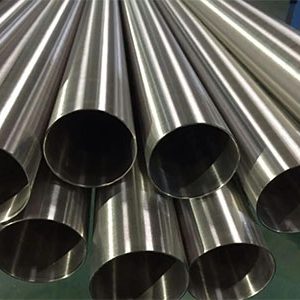
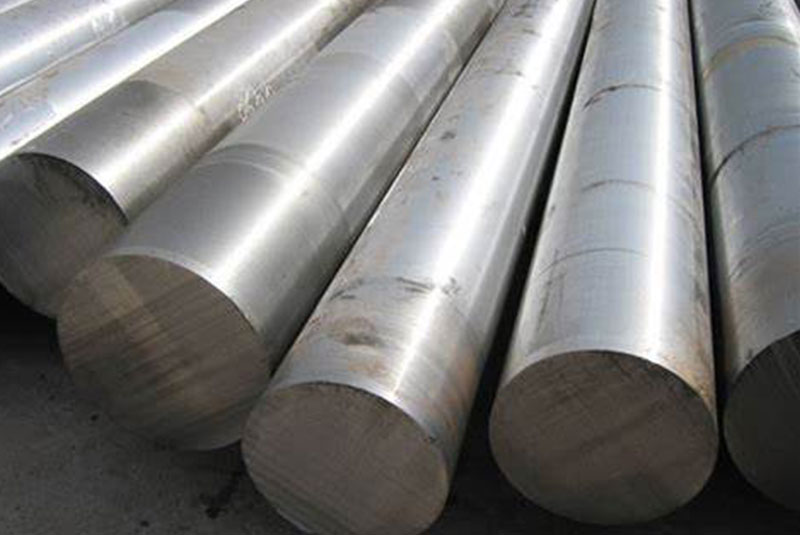
Specifications, Sizes, Grades, and Standards
When selecting T10 Mould Steel for specific applications, it’s important to consider the available specifications, sizes, grades, and standards.
| Specification | Detail |
|---|---|
| Standard | GB/T 1298-1986 |
| Size Range | Available in sheets, bars, and plates of various dimensions |
| Grade | T10, also known as 1.1545 in DIN standard |
| Heat Treatment | Can be annealed, hardened, and tempered |
Suppliers and Pricing Details
Here’s a look at some suppliers and typical pricing for T10 Mould Steel:
| Supplier | Location | Price Range (per kg) |
|---|---|---|
| BaoSteel | China | $3.00 – $4.50 |
| Nippon Steel | Japan | $4.50 – $6.00 |
| UDDEHOLM | Sweden | $5.00 – $7.00 |
| ArcelorMittal | Global | $4.00 – $5.50 |
| Tata Steel | India | $3.50 – $5.00 |
Advantages of T10 Mould Steel
Why choose T10 Mould Steel over other materials? Here are some compelling reasons:
- High Hardness and Strength: T10 steel is renowned for its ability to achieve high hardness, which translates to excellent cutting performance and wear resistance.
- Superior Wear Resistance: The high carbon content provides exceptional wear resistance, making it suitable for high-stress applications.
- Good Machinability: Despite its hardness, T10 steel can be machined with precision, allowing for the creation of complex shapes and detailed components.
- Versatility: T10 steel is used in a wide range of applications, from cutting tools to molds, demonstrating its versatility in various industries.
Disadvantages of T10 Mould Steel
However, T10 Mould Steel is not without its drawbacks:
- Brittleness: Due to its high hardness, T10 steel can be more brittle compared to other types of steel, which may lead to cracking under extreme conditions.
- Corrosion Resistance: T10 steel does not have significant corrosion resistance, which means it requires proper maintenance and potentially additional coatings to prevent rust.
- Heat Sensitivity: High temperatures can affect the hardness and wear resistance of T10 steel, making it less suitable for high-temperature applications.

Comparing T10 Mould Steel with Other Steels
When considering T10 Mould Steel, it’s important to compare it with other steel types to understand its unique benefits and limitations.
T10 Mould Steel vs. H13 Tool Steel
| Feature | T10 Mould Steel | H13 Tool Steel |
|---|---|---|
| Hardness | 58-63 HRC | 48-52 HRC |
| Wear Resistance | High | Moderate |
| Toughness | Moderate | High |
| Corrosion Resistance | Low | High |
| Heat Resistance | Moderate | High |
| Applications | Cutting tools, dies, molds | Hot work tooling, dies, extrusion tooling |
T10 Mould Steel vs. D2 Tool Steel
| Feature | T10 Mould Steel | D2 Tool Steel |
|---|---|---|
| Hardness | 58-63 HRC | 54-61 HRC |
| Wear Resistance | High | Very High |
| Toughness | Moderate | Low to Moderate |
| Corrosion Resistance | Low | Moderate |
| Heat Resistance | Moderate | High |
| Applications | Cutting tools, dies, molds | Shear blades, dies, punches, industrial knives |
Advantages and Limitations Comparison
| Feature | Advantages of T10 Mould Steel | Limitations of T10 Mould Steel |
|---|---|---|
| High Hardness | Excellent for wear resistance | Can be brittle |
| Wear Resistance | Long-lasting in high-stress applications | May require frequent maintenance |
| Machinability | Precise and detailed manufacturing | Less corrosion-resistant |
| Versatility | Suitable for a wide range of applications | Affected by high temperatures |
Types of Metal Powder Models
For specialized applications, various metal powder models of T10 steel are used. Here are ten specific models with their descriptions:
- T10-PM (Powder Metallurgy): Provides enhanced uniformity and strength for high-precision components.
- T10-HC (High Carbon): Offers higher wear resistance for cutting and drilling tools.
- T10-LC (Low Carbon): Enhanced machinability for complex shapes and fine details.
- T10-HT (High Temperature): Designed for applications requiring higher temperature resistance.
- T10-CR (Corrosion Resistant): Improved corrosion resistance for use in humid or corrosive environments.
- T10-SS (Super Strength): Enhanced strength for heavy-duty industrial applications.
- T10-MS (Microstructure Stable): Maintains stable microstructure under varying thermal conditions.
- T10-MO (Molybdenum Enhanced): Increased toughness and durability for high-impact applications.
- T10-NI (Nickel Enhanced): Improved toughness and corrosion resistance, ideal for demanding environments.
- T10-TF (Titanium Alloyed): Increased strength-to-weight ratio, suitable for aerospace and high-stress applications.
Applications of Special Steel T10 Mould Steel
Cutting Tools
T10 Mould Steel is frequently utilized in the manufacturing of cutting tools due to its excellent hardness and wear resistance. This includes applications such as knives, saw blades, drills, and other cutting instruments that require a sharp, durable edge.
Molds and Dies
In the realm of manufacturing, T10 Mould Steel is a prime choice for creating molds and dies. Its ability to withstand high-stress environments and maintain precise shapes over long periods makes it indispensable in injection molding and die casting industries.
Wear-Resistant Parts
Components that experience constant friction and wear, such as gears and bearings, benefit from T10 Mould Steel. Its high wear resistance ensures a longer lifespan and reliable performance under demanding conditions.
Precision Instruments
For instruments requiring high accuracy and durability, T10 Mould Steel offers the needed precision and longevity. This includes precision measuring tools, surgical instruments, and fine mechanical parts.
Agricultural Tools
In agriculture, tools and equipment made from T10 Mould Steel can withstand harsh working conditions and frequent use. This includes plows, blades, and other farming implements.
Automotive Components
The automotive industry uses T10 Mould Steel for parts that must endure significant stress and wear. This includes components such as shafts, axles, and other critical parts requiring durability and strength.
Metal Forming
T10 Mould Steel is ideal for metal forming operations like stamping, extrusion, and forging. Its robustness ensures that it can handle the high pressures involved in these processes without deforming.
Advantages of Special Steel T10 Mould Steel
High Hardness and Strength
One of the standout features of T10 Mould Steel is its high hardness, typically ranging from 58 to 63 HRC after proper heat treatment. This high hardness ensures that the steel can maintain a sharp edge and resist wear, making it suitable for cutting tools and high-wear components.
Superior Wear Resistance
The high carbon content in T10 Mould Steel provides excellent wear resistance. This characteristic is crucial for applications involving repeated friction and abrasion, such as in molds, dies, and wear-resistant parts.
Good Machinability
Despite its high hardness, T10 Mould Steel can be machined with precision. This machinability allows for the creation of intricate shapes and detailed components, making it versatile for various applications.
Versatility
T10 Mould Steel is used across multiple industries, from manufacturing cutting tools to producing automotive components. Its versatility stems from its combination of hardness, wear resistance, and machinability.

Disadvantages of Special Steel T10 Mould Steel
Brittleness
One of the primary drawbacks of T10 Mould Steel is its brittleness. The high hardness that provides excellent wear resistance also makes the steel more prone to cracking under extreme conditions or heavy impact.
Corrosion Resistance
T10 Mould Steel lacks significant corrosion resistance, which means it is susceptible to rust and corrosion if not properly maintained. This limitation necessitates the use of protective coatings or treatments in environments where corrosion is a concern.
Heat Sensitivity
While T10 Mould Steel performs well under normal conditions, its properties can be affected by high temperatures. Extended exposure to high heat can reduce its hardness and wear resistance, making it less suitable for high-temperature applications.
Comparing T10 Mould Steel with Other Steels
T10 Mould Steel vs. H13 Tool Steel
T10 Mould Steel and H13 Tool Steel are both used for tool-making, but they have distinct differences:
- Hardness: T10 has a higher hardness (58-63 HRC) compared to H13 (48-52 HRC).
- Wear Resistance: T10 offers superior wear resistance, while H13 is known for better toughness.
- Corrosion Resistance: H13 has better corrosion resistance due to its higher chromium content.
- Heat Resistance: H13 excels in high-temperature environments, making it suitable for hot work applications, whereas T10 is more prone to heat sensitivity.
T10 Mould Steel vs. D2 Tool Steel
D2 Tool Steel is another high-carbon, high-chromium steel often compared to T10 Mould Steel:
- Hardness: T10 has slightly higher hardness (58-63 HRC) compared to D2 (54-61 HRC).
- Wear Resistance: D2 offers better wear resistance due to its higher chromium content.
- Toughness: D2 is generally tougher than T10, reducing the risk of cracking.
- Corrosion Resistance: D2 provides moderate corrosion resistance, unlike T10.
- Applications: D2 is preferred for industrial knives and punches, while T10 is ideal for cutting tools and molds.
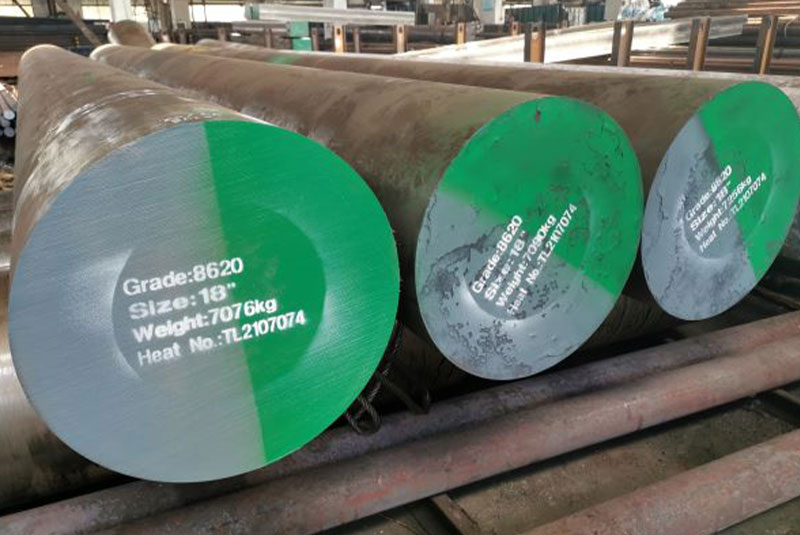
FAQ
| Question | Answer |
|---|---|
| What is T10 Mould Steel used for? | T10 Mould Steel is used for cutting tools, molds, dies, wear-resistant parts, and precision instruments. |
| What are the main properties of T10 Mould Steel? | High hardness (58-63 HRC), excellent wear resistance, good machinability, and high strength. |
| How does T10 Mould Steel compare to H13 Tool Steel? | T10 has higher hardness and wear resistance, while H13 offers better toughness and heat resistance. |
| Is T10 Mould Steel corrosion resistant? | No, T10 Mould Steel has low corrosion resistance and may require protective coatings. |
| Can T10 Mould Steel be used in high-temperature applications? | It is not ideal for high-temperature applications due to heat sensitivity. |
| What industries use T10 Mould Steel? | Industries like manufacturing, automotive, agriculture, and precision tooling use T10 Mould Steel. |
| What are the disadvantages of T10 Mould Steel? | Brittleness, low corrosion resistance, and heat sensitivity are the main disadvantages. |
| What are the advantages of T10 Mould Steel? | High hardness, superior wear resistance, good machinability, and versatility are the key advantages. |
| How should T10 Mould Steel be maintained? | Regular maintenance, protective coatings, and avoiding high-temperature exposure are recommended. |
| What are some common suppliers of T10 Mould Steel? | BaoSteel, Nippon Steel, UDDEHOLM, ArcelorMittal, and Tata Steel are common suppliers. |
Conclusion
Special Steel T10 Mould Steel is a remarkable material offering a balance of hardness, strength, and wear resistance, making it suitable for a wide array of applications. From cutting tools and precision instruments to molds and dies, T10 Mould Steel proves its versatility and reliability. However, it’s essential to consider its limitations, such as brittleness and low corrosion resistance, when selecting it for specific uses. By understanding the unique properties and comparing them with other steels, manufacturers and engineers can make informed decisions to achieve optimal performance in their projects.
Whether you’re in the automotive, agricultural, or manufacturing industry, T10 Mould Steel offers a robust solution for high-stress applications. Its range of metal powder models further enhances its adaptability to specialized needs, ensuring that you have the right material for the job.

